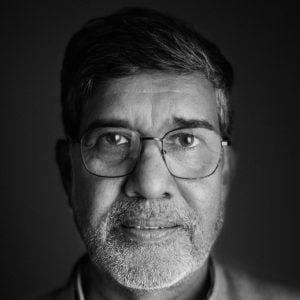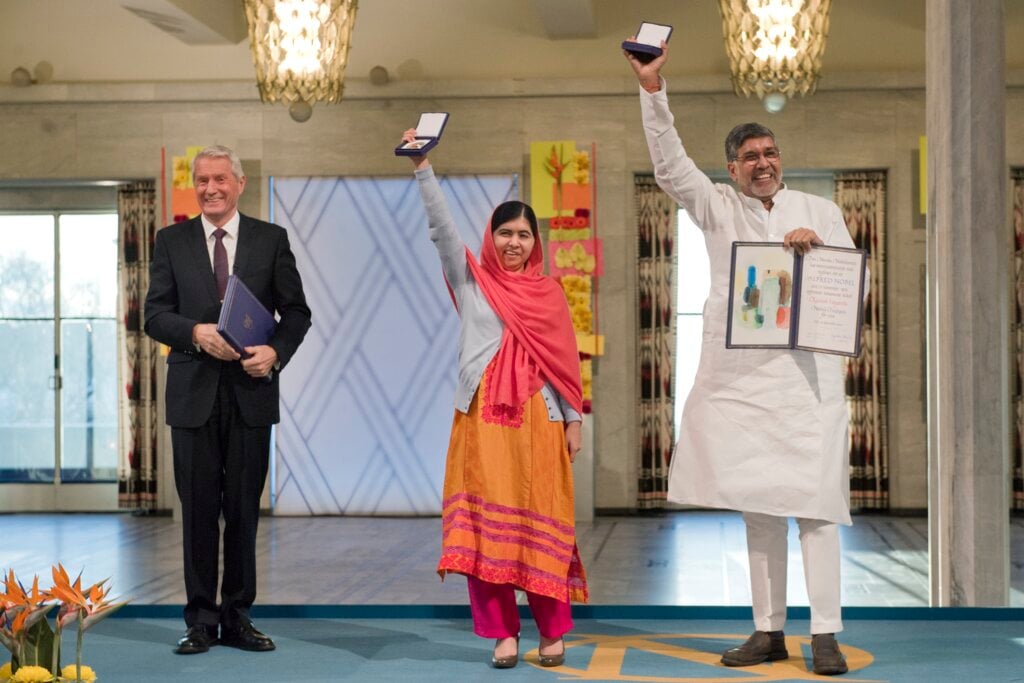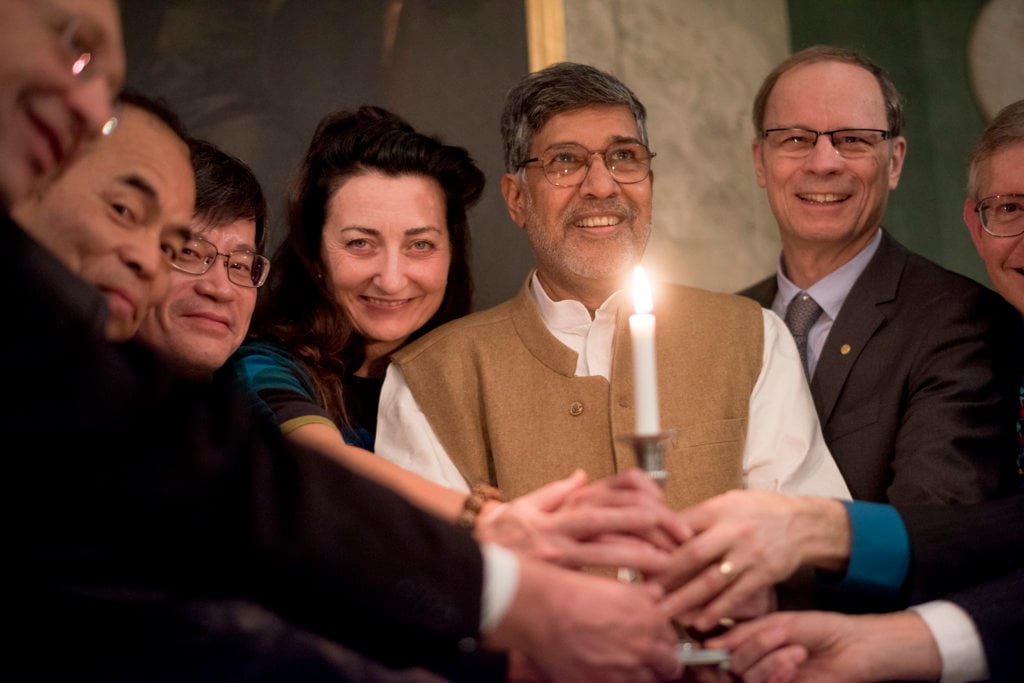Kailash Satyarthi
Speed read
Kailash Satyarthi was awarded the Nobel Peace Prize, jointly with Malala Yousafzai, for his struggle against the suppression of children and young people and for the right of all children to education.

Full name: Kailash Satyarthi
Born: 11 January 1954, Vidisha, India
Date awarded: 10 October 2014
The children’s rights activist
For decades India’s Kailash Satyarthi has waged a battle against child labour. Through awareness-raising and information campaigns, raids and rescue missions, his organisation Bachpan Bachao Andolan (Save Childhood Movement) has helped tens of thousands of children to escape from forced labour and into education. Satyarthi has put the fight against child labour and for education on the global agenda. In the late 1990s he led the Global March Against Child Labour, a campaign which led to the ILO’s Convention 182 on the Worst Forms of Child Labour. Satyarthi has set up the “Good Weave” labelling scheme for the South Asian carpet industry, which shows that the products have not been made by children. Despite death threats and the murder of two colleagues, he continues the fight for children’s rights.
”The real meaning of freedom can be realised only once child labour is completely eliminated and every child receives free, compulsory and quality education.”
Kailash Satyarthi, New Delhi, 14 August 2013.

From the Nobel Committee’s announcement
“The Norwegian Nobel Committee has decided that the Nobel Peace Prize for 2014 is to be awarded to Kailash Satyarthi and Malala Yousafzay for their struggle against the suppression of children and young people and for the right of all children to education. Children must go to school and not be financially exploited. (…) Showing great personal courage, Kailash Satyarthi, maintaining Gandhi’s tradition, has headed various forms of protests and demonstrations, all peaceful, focusing on the grave exploitation of children for financial gain. He has also contributed to the development of important international conventions on children’s rights.”
In the spirit of Gandhi
Gandhi never received the Nobel Peace Prize, but his philosophy has inspired many peace laureates. In its announcement, the Norwegian Nobel Committee emphasised Satyarthi’s non-violent activism. His methods include marches, mass mobilisation and information campaigns. He takes direct, physical action through raids and rescue missions, where he brings child labourers out of factories. When aggressive opponents try to stop him, he – like Gandhi – sticks to the principle of non-violence. In this way he changes attitudes, influences public authorities, raises the awareness of consumers and helps children out of forced labour.
”Those who continue to buy goods made by child labour are responsible for the perpetuation of child slavery.”
Kailash Satyarthi, New Delhi, 11 August 2013.
Child labour
ILO defines child labour as work which deprives children of their childhood, dignity and right to education, and which is harmful to their physical and mental development. In the most extreme form of child labour, children are treated as slaves, separated from their families and exposed to serious hazards. According to ILO, there were 168 million child labourers worldwide in 2012, down from 246 million in 2000. The use of child labour is falling, but it is happening slowly and unevenly. Article 32 of the UN Convention of the Rights of the Child states that children have a right to be protected from economic exploitation.
Two sides of the same cause?
The Nobel Peace Prize to Kailash Satyarthi and Malala Yousafzai is an award both for human rights and humanitarian work. With this prize the Norwegian Nobel Committee wishes to build a bridge between nations, religions and generations. Kailash Satyarthi is a 60-year-old Hindu from India, while Malala Yousafzai is a 17-year-old Muslim from Pakistan. The two Nobel Peace Prize laureates work in different arenas, but are bound together in the fight for children’s rights and the goal of enabling every child to go to school. Both are supporters of non-violence, even in the face of threats and attacks by their opponents.

Learn more
Kailash Satyarthi (born on January 11, 1954) is a human rights activist from India who has been at the forefront of the global movement to end child slavery and exploitation since 1980, when he gave up a lucrative career as an electrical engineer to initiate a crusade against child servitude ...
Disclaimer: Every effort has been made by the publisher to credit organisations and individuals with regard to the supply of photographs. Please notify the publishers regarding corrections.
Nobel Prizes and laureates
Six prizes were awarded for achievements that have conferred the greatest benefit to humankind. The 12 laureates' work and discoveries range from proteins' structures and machine learning to fighting for a world free of nuclear weapons.
See them all presented here.
